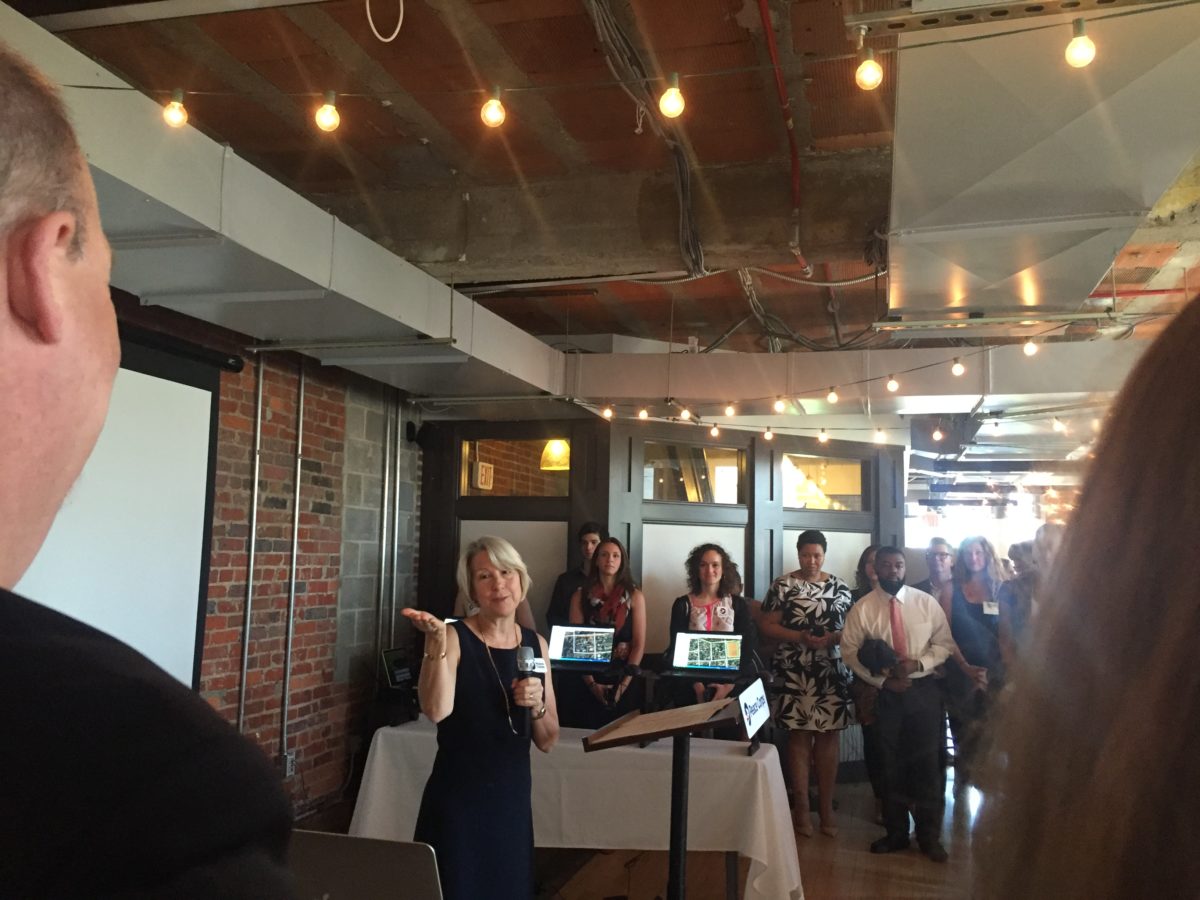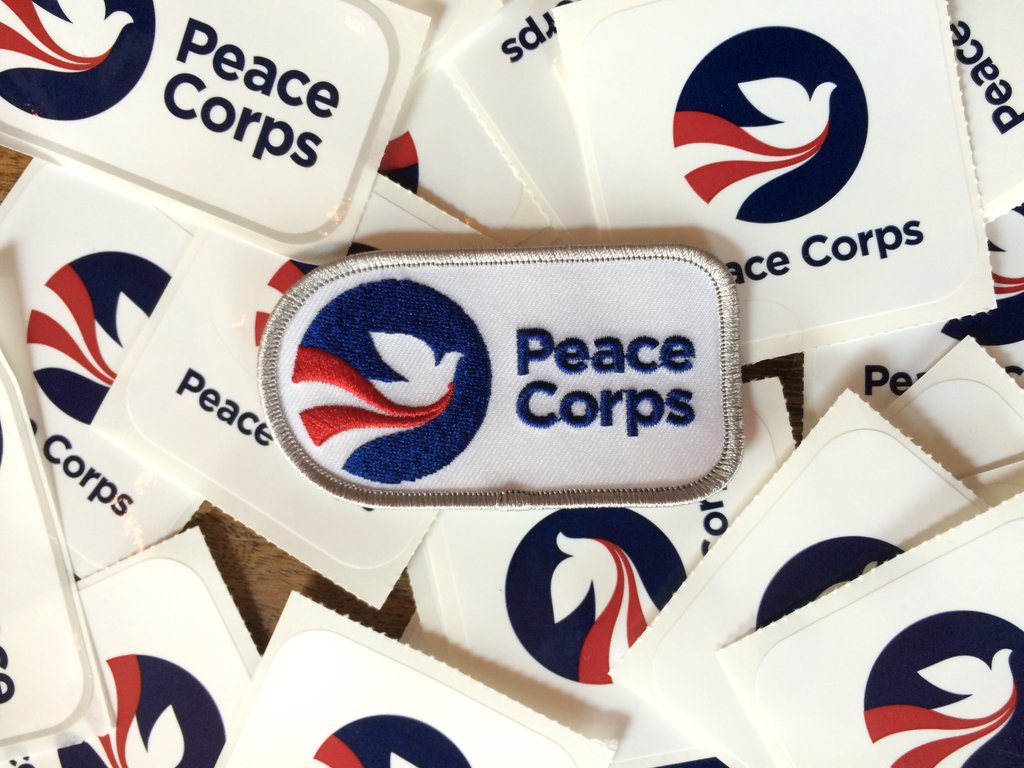What’s a Peace Corps volunteer to do when they get evacuated from their country of service months before the end of the project? In one case, at least, a partnership with a Pittsburgh-based tech company provided a way to continue the work.
See, in 2014 over 200 Peace Corps volunteers in Ukraine were evacuated due to unrest in the country. In the aftermath the Peace Corps formed a partnership with Duolingo, and volunteers spent time compiling both a Ukrainian for English-speakers course and an English for Ukrainian-speakers course.
Patrick Choquette, director of innovation at Peace Corps, showcased the team’s English to Ukrainian handiwork (still in Beta) at a Peace Corps rebranding event on Wednesday, where the organization also announced its new logo and website. Technical.ly chatted with Choquette about the benefits to a Peace Corps/Duolingo collabo.

Peace Corps director Carrie Hessler-Radelet speaks during the event on Wednesday. (Photo by Tajha Chappellet-Lanier)
The partnership is a smart one. Duolingo naturally wants to expand into as many language combinations as possible, but only has the in-house ability for so much. What they do have is great tech tools and talent. The Peace Corps, meanwhile, has enviable human resources teaching and learning a broad range of languages. Right now, there are nearly 7,000 Peace Corps volunteers working around the world. But, as Choquette said bluntly, “we’re not a tech company.”
So why not team up with one?
The mechanism for cooperation, in this case, is Duolingo’s Incubator, where volunteers can apply to help Duolingo develop language courses. The Peace Corps struck a deal that bumped volunteers to the top of the contributor list, Choquette told Technical.ly, and they got to work.

Learning Ukrainian on Duolingo. (Photo by Tajha Chappellet-Lanier)
The language incubation process is divided into three steps — a pre-release working stage, a Beta testing stage and a final release. According to the Duolingo incubator site, 53 courses have “graduated” from the program, six are in Beta and another 25 are being worked on.
Choquette said PCVs are already working on more courses — Swahili for English speakers and Guarani, an indigenous language spoken in Paraguay.
And Duolingo language courses developed with the help of Peace Corps volunteers not only serve as a gift of knowledge, but they also can be used to help new enlistees learn more language skills before traveling to their country of service.
Choquette said previously this was done with Word documents on basic vocab and grammar, which, understandably, wasn’t that effective. Now he says they can monitor volunteers’ learning processes and find out what motivates study.
As the Peace Corps celebrates 55 years and looks ahead to a new generation of volunteers and an ever-more connected world (“We’re reaching out to meet the new generation where they are which is online — and in the cloud,” director Carrie Hessler-Radelet quipped in her remarks at the rebranding event on Wednesday), a solid tech partnership with the goal of contributing global language learning seems like something to be proud of.
Join the conversation!
Find news, events, jobs and people who share your interests on Technical.ly's open community Slack

DC daily roundup: Startup founders offer praise; Howard U breaks application record; NavalX gets new director

DC daily roundup: Washington Post's AI collab; a greentech glossary; Halcyon's debut Climate Fellowship cohort

DC daily roundup: Inside UMCP's new ethical AI project; HBCU founder excellence; a big VC shutters MoCo office

